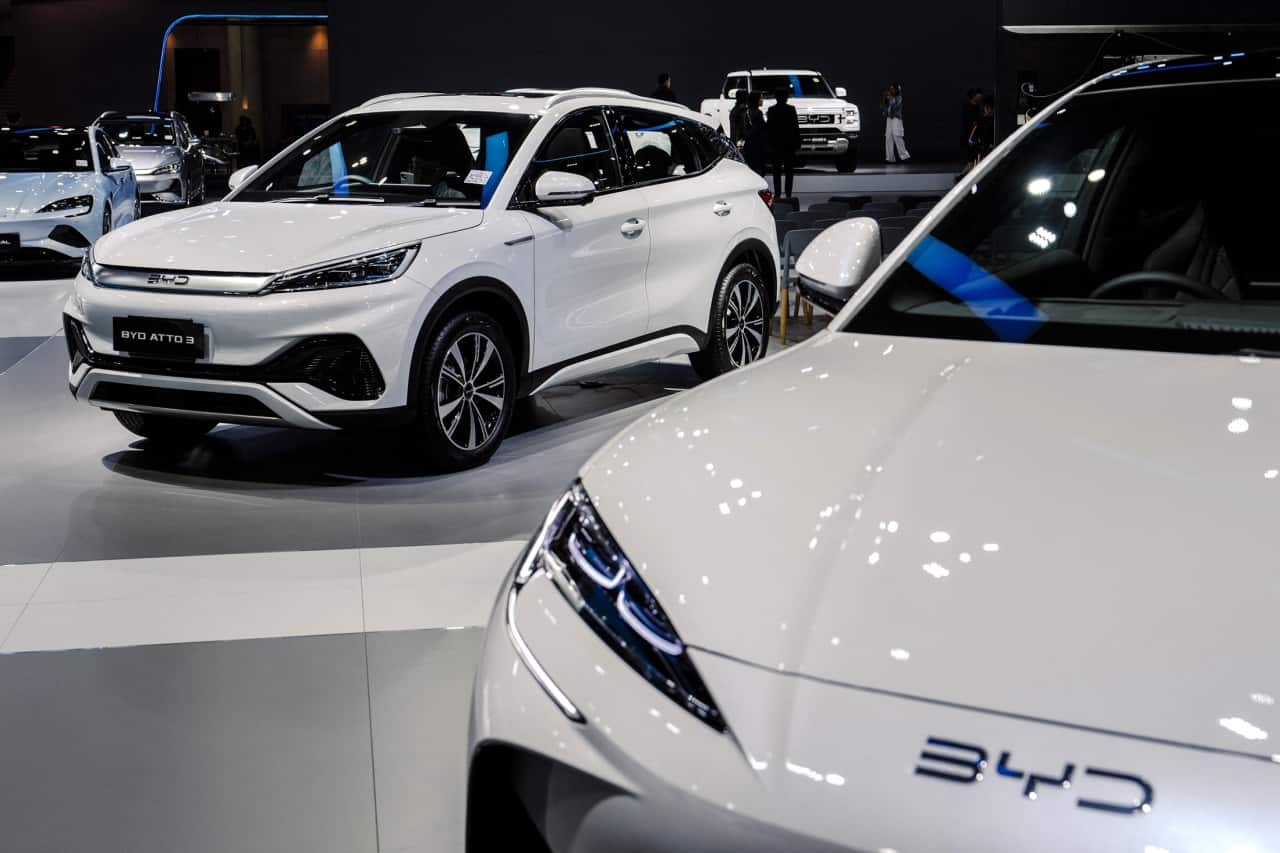
Shares of Chinese
electric-vehicle maker
, and fierce Tesla
competitor
BYD saw a surge in international markets on Friday. Several factors could have contributed to this rise, with one potential reason being the intensifying U.S.-China trade conflict.
The share price increased by 7.2% during post-market trading. The S&P 500 and the Dow Jones IndustrialAverage climbed up by 1.8% and 1.6% correspondingly. Following China’s announcement, the stock indices exhibited significant fluctuation.
125% tariff rates
on U.S. imports.
This aligns with tariffs imposed on goods imported from China into the US. The United States and China, as the planet’s two biggest economic powers, are engaged in an escalating series of retaliatory trade measures which could hinder global growth and increase consumer costs worldwide.
It might also reshape the future of the automotive sector. Tesla is
no longer
Tesla is accepting orders for its Model S, X, or Cybertruck in China as per their website. The tariffs appear to be the primary factor behind this move. Tesla did not reply to a request for comments regarding these orders.
The immediate effect of Chinese tariffs on Tesla is minimal. In the first quarter, they sold approximately 13,000 Model S, X, and Cybertrucks worldwide, which constitutes around 4% of their overall sales. This action is logical because Tesla would need to reduce prices by nearly 45% just to maintain the same retail cost for Chinese buyers. Doing so could result in Tesla losing tens of thousands of dollars for each vehicle sold.
Tesla’s quite sensible choice consequently reduces competition for BYD. Currently, BYD holds the position as the top seller of fully electric vehicles both within China and worldwide, with Tesla being positioned right behind them.
This change highlights an unforeseen outcome of a trade war. Additional consequences may arise as well. The U.S. has imposed 25% import taxes on automobiles from every country, including those from Europe. In response, the European Union is contemplating countermeasures. If tensions continue to rise between the U.S. and Europe, it could create opportunities for more BYD electric vehicles in the European market.
BYD hardly requires additional assistance. Over the last 12 months, it has shipped roughly 525,000 vehicles, marking an increase of nearly 75% compared to the previous year.
BofA Securities analyst
John Murphy
suggested that high tariffs might actually accelerate the entry of Chinese vehicles into the American market.
Historically, American automakers have often left the lower-tier market segments behind when their production costs increased, he explained. (Saturns and Ford Tempos are both discontinued models now.)
In March, just 26 models exhibited average transaction prices.
below $30,000
According to data from Cox Automotive, “Cars with prices under $30,000 are particularly susceptible to the new tariff policy implemented by the White House,” as stated by Cox.
Furthermore, less expensive cars are often manufactured outside of the United States. This includes models like the Chevy Trax, Honda HR-V, Kia Soul, Mazda 3, and Nissan Sentra, as well as the recently discontinued Mitsubishi Mirage. Cox noted that among these, the Mirage stands out as the sole model in the U.S. market with an average transaction price below $20,000.
The Chinese car invasion is years away. The country’s auto makers have to build plants and supply chains in the U.S. Still, that’s a risk investors, and politicians, should think about.
Additionally boosting BYD’s stock is an increase in the target price initiated by Daiwa analyst.
Kelvin Lau
He adjusted his price target from 431 Hong Kong dollars to HKD 484 (approximately $55.56 to $62.40) due to the potential for global growth. Lau recommends buying the electric vehicle company’s stock.
The average analyst
price target
For the BYD stock, it is currently around HKD 461, as reported by FactSet, which is approximately 25% above recent prices.
By the end of Friday’s trading session, BYD shares had risen approximately 38% for the year so far.
Send your letter to Al Root
[email protected]